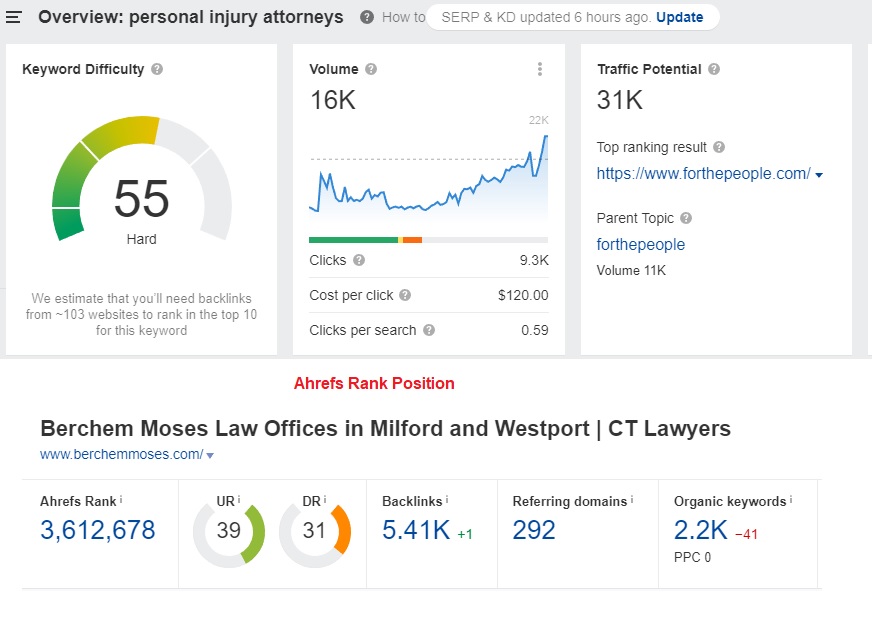How search engines work is by using a program called an algorithm that sends bots or spiders out to find relevant content on the web that matches the search intent of the user. By using algorithms to index and rank content, search engines can render results by personalizing and localizing results based on the user’s search intent.

Introduction to Search Engines and How Search Engines Work
Do you ever wonder how search engines find the information you’re looking for? Have you ever wondered about the incredible algorithms that power these tools?
If so, then this blog post is for you! Learn all about how search engines work and the amazing technologies that make it possible. Keep reading to uncover the mystery of how search engines deliver results!
Search engines are a big part of online browsing and are used to search for information. They use algorithms to index and organize content, rank results, and provide personalized results based on the user’s interests.
Knowing how search engines work can help you get the most relevant and useful information when searching for it online.
Understanding the Search Engine Algorithm

Search engines are computer programs that allow users to find information on the internet. They work by indexing the web and returning results based on a user’s search terms.
Search engines use a variety of algorithms to rank websites and return results. The most important algorithm is the PageRank algorithm, which determines the relevance of a website. The higher the PageRank, the more relevant the website will be to a user’s search.
Search engines also use personalization and localization algorithms to adjust results for different languages and regions. This ensures that users always receive the most relevant information.
Crawling and Indexing Content
Search engines work by indexing and ranking the content that is found on the web. They use a variety of algorithms to determine the relevance of a given piece of content and to rank it accordingly. The goal of search engines is to provide users with the most relevant information possible.
Ranking and Relevance
Search engines use algorithms to determine the relevance and quality of content. The ranking is key in determining how a website appears in search engine results pages (SERPs).
In order to rank higher, websites must provide high-quality content that is relevant to the user’s query. One way to measure the relevance and quality of content is through online “clickthrough rates” or CTRs. CTR measures how often a visitor clicks on an advertisement or link within a web page.
Quality factors can also affect how ranked a website will be by search engines, such as the number of unique visitors per month, indexed pages, and backlinks from other high-quality websites.
Algorithms for Determining Ranking Factors
Search engines use algorithms to determine ranking factors and determine which pages are presented to a user in response to a search query.
The ranking is the process of assigning order or priority to items according to some standard. The most important factor considered in ranking is the relevance of the content, as determined by its text, links, and other features.
Unfortunately, rankings can change quickly based on a number of factors; therefore, it’s important for website owners to keep up with changes so their content remains relevant and useful to users.
Impact of Backlinks on Search Engine Rankings

When someone types in a keyword or phrase into a search engine, the computer programs running the search engines read through all of the web pages that are indexed with that word or phrase.
The computer then compares those pages to see which ones have better content and file size. It then uses this information to place those pages higher on its search results page (SERP).
The process of ranking pages is complex, but there are several factors that play into it. According to Moz, “PageRank is one of Google’s original ranking parameters and reflects how well a particular website links back to other websites”.
The more backlinks a website has, the higher its PageRank will be, and vice versa. This is why sites with high PageRank tend to rank higher in search engine results pages.
Another ranking factor is the amount of traffic a website receives. Sites that receive a lot of traffic from search engines tend to rank higher than those that don’t.
However, this isn’t the only factor that determines a website’s ranking. There are also “quality signals” that play into the ranking process, such as the number of comments a site has, the number of social shares it has, and the number of votes it has received.
The impact of backlinks on search engine rankings is complex and depends on a variety of factors. However, according to Moz, “backlinks are one of the most important factors in determining how high a website appears in search engine results pages”.
Optimizing Webpages for Increased Visibility
Search engines are constantly trying to find the most relevant information for their users. This is done by using algorithms to rank websites according to how relevant their content is. The higher a website ranks, the more likely people are to find it.
To rank higher, websites must optimize their pages for search engine visibility. This includes making sure the website’s title, metadata, and content are all accurate and up-to-date. Additionally, webpages should be well-designed and easy to navigate.
By optimizing your website for search engine visibility, you can increase your chances of ranking high in search engine results pages (SERPs).
Personalization and Localization
One of the benefits of knowing how search engines work is that you can optimize your website for better search engine visibility. By optimizing your website for search engines, you can improve your website’s ranking and make it more likely that people will find what they’re looking for.
One of the most important things you can do to optimize your website for search engines is to make sure your website is well-crawled and indexed.
Search engines use a variety of methods to index and crawl websites, including using robots.txt files and web crawlers. By making sure your website is well-crawled and indexed, you can ensure that your website is available to be found by search engines.
Another important thing you can do to optimize your website for search engines is to make sure your website is relevant to the keywords that people are searching for.
By optimizing your website for the keywords that people are searching for, you can improve the likelihood that people will find what they’re looking for on your website.
Finally, you can also personalize your website for each individual visitor by including the visitor’s name and location in the pages of your website. This personalization helps ensure that each visitor has a unique experience on your website.
By knowing how search engines work, you can optimize your website for better search engine visibility and increase the likelihood that people will find what they’re looking for on your website.
Optimizing for Search Engines
Even if you’ve been using search engines for years, there’s a good chance you don’t fully understand how they work. In this section, we’ll outline the different stages that search engines go through when querying content, and look at some of the tricks and techniques used to improve the relevance and ranking of results.
In conclusion, understanding how search engines work is an essential part of succeeding in the digital age. Knowing the basics of search engine algorithms, crawling and indexing content, ranking and relevance, personalization and localization, and optimizing for search engines can help you get the most out of your online presence. With this knowledge, you can make sure that your website is visible to the right people and that it is optimized for success.


